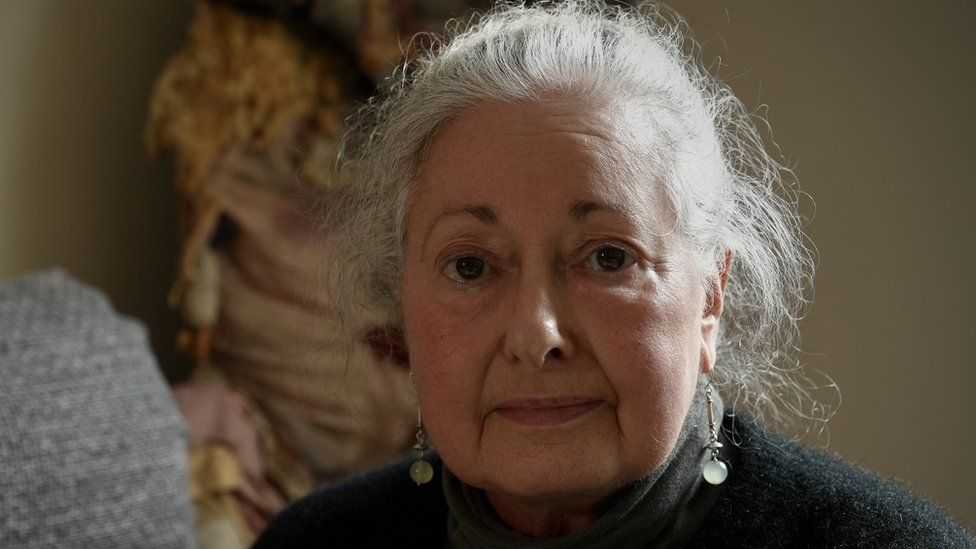ARTICLE AD BOX

The drugs Blanche Hampton takes for lupus suppress her immune system
By Dominic Hughes
Health correspondent, BBC News
Time is running out for hundreds of thousands of vulnerable people who are facing another winter shielding from Covid, campaigners have said.
They are calling on the government to buy a drug called Evusheld to provide some protection against the virus.
The government says it is not clear how long that protection will last when up against the Omicron variant.
But patients, charities and health experts argue the protection offered is better than nothing.
There are around 500,000 people in the UK with suppressed immune systems.
That means their bodies struggle to produce antibodies, so the existing vaccines offer them little or no protection, leaving them very vulnerable to Covid.
Blanche Hampton has lupus, a condition where her immune system has turned against her.
The drugs she takes to control the lupus also suppress her immune system, meaning her body has no defences against Covid.
Blanche has been shielding for two and a half years, but she believes Evusheld offers a chance for at least some kind of existence outside of her small flat in Inverkip, west of Glasgow.
Image source, Getty Images
Image caption,People whose immune systems do not respond well to vaccines could benefit from the antibody treatment, campaigners say
"Evusheld would give me a layer of protection, that is better than nothing. Because that's what I have currently - nothing."
And Blanche, like many people who find themselves in the same situation, says she feels abandoned.
"I'm expensive and expendable. So, you know, the sooner people like me disappear, the easier it will be for everybody.
"You don't have any hope and it is one of the requisites for humans to want to stay alive.
"So this thing is draining me of any desire to really continue with my life, because it isn't a life."
Evusheld, manufactured by AstraZeneca, was approved by the UK medicines regulator in March and is already available in more than 30 other countries.
In particular, there are some concerns over how long protection may last against the Omicron variant of Covid.
Ministers say they are urgently looking into setting up clinical trials, but it's unlikely that any results will be available until late spring at the earliest.
'Thrown under a bus'
Scott and Nikola Bridgen have shared their disappointment over the decision
That decision was a bitter blow for Scott Bridgen and his wife Nikola.
Scott's treatment for a rare form of blood cancer has left his immune system in pieces.
Evusheld offered the couple the chance to make some memories in whatever time Scott has left.
Scott says he feels terribly let down.
"I'm ex-military, I served this country in the early 1990s, and I feel like I've just been thrown under the bus to be quite honest."
Scott's wife Nikola is one of the founders of the patient campaign group 'Evusheld for the UK', which is pushing for the decision to be reviewed.
"The solution to the problem is there, but we can't get it.
"And to be honest, I think that's even more cruel than not having a solution at all."
Prof Alex Richter, consultant immunologist at University of Birmingham, said: "The decision to not run with Evusheld this winter is very much a kind of glass half empty approach.
"But the glass half-full approach is, it has some activity and it has some benefit. And so for very many patients, actually isn't it better to do something for them rather than nothing?"
Campaigners - backed by charities such as Kidney Care UK and the MS Society and more than 120 medical experts - say time is now running out, ahead of another winter during which the most vulnerable will have to shield.
They argue that even if Evusheld doesn't give 100% protection, doing something is better than doing nothing.
They warn the mental, physical and economic costs of another winter of isolation for hundreds of thousands of people will have an impact for years to come.
A Department of Health and Social Care spokesperson said they were "urgently exploring" the option of commissioning a clinical trial.
The spokesman added: "We are keeping the evidence under close review and NICE have begun their appraisal of Evusheld. If they consider the treatment to be clinically and cost effective, it will be made available on the NHS in the usual way."
Related Internet Links
The BBC is not responsible for the content of external sites.

 2 years ago
31
2 years ago
31








 English (US) ·
English (US) ·